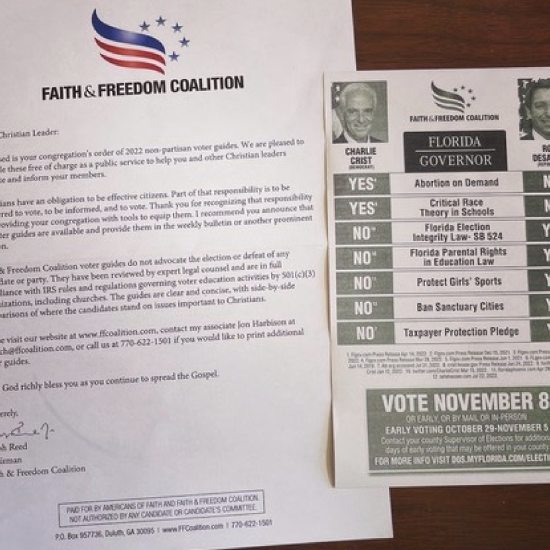By Bill Webb
Word&Way Editor
Religious conservatives in Missouri claimed two major victories at the polls last week on controversial moral issues: (1) approval of a state constitutional amendment that bans gay marriages by defining marriage as solely between a man and a woman and (2) defeat of an amendment that would have permitted a "riverboat" casino in Rockaway Beach, not far from Branson.
Voters approved the marriage amendment by a whopping 71 percent "yes" vote and turned away gambling down the road from Branson by a comfortable 56-to-44 margin. Lobbying was fierce and costly by activists on bo th sides of each issue.
th sides of each issue.
Neither matter is completely behind us.
Proponents of gay marriages will at least press their claims for the same rights and privileges as heterosexual couples, appealing from the basis not of legal marriage, but of civil unions, which are not prohibited by the passage of the marriage amendment.
And the good folks of Rockaway Beach, trying to turn around a hapless economy to provide a better future for themselves and their children, say Missourians haven't heard the last of them. Leaders say they are going back to the drawing board, perhaps to resurrect hopes for casino gambling again, perhaps to find what many would regard as a more wholesome solution to their economic malaise.
Baptists and other Christians have discovered what it's like to have political clout – and it is a heady feeling. Everyone likes to win, especially when the issues at hand have strong emotional and spiritual overtones. Literal armies of activists and voters have been mobilized in massive displays of lobbying and balloting might.
But is that all there is?
What are we to do about those who make lifestyle choices we believe to be sinful? How do we deal with people in communities that would welcome any opportunity for jobs – even the gambling industry?
My worst hunch is that it might be far easier to mobilize a group of Christians to advance a ban on same-sex marriages than to form a group to pray for proponents of gay marriages, or a group to witness to people who call themselves gay or to minister in an AIDS clinic.
It is pretty easy to lobby against a community's ill-advised plan to create prosperity by hitching its wagon to the star of the gambling industry. Finding ways to reach out to people who are down on their luck is not quite so glamorous as a political rally. In fact, even among Christians, consorting with those who are poor or who may otherwise suffer is usually a lonely task. God knows.
Christians, at their best, desire to be good citizens. We know the importance of good government and, because the Bible tells us so, we pray for leaders who govern us, both those who are exemplary and those we may regard as scoundrels. We know fair and just laws are necessary.
As Christians, we also know that laws are important for a sound society. We also know that laws do not change people, not at the deepest level. In God's design, the law never was intended to do that. A change of heart is a relationship matter between a person and God.
Evangelicals are fond of "confronting the culture" these days, sometimes regarding the culture as a dragon to be defeated, But the culture is not some inanimate object. It is people who comprise the culture, and if the culture is to change, it will be because the population is transformed.
Spiritual transformation comes not by a majority vote, but by "Ananias-I-want-you-to-go-down-to-a-house-and-tell-Saul-the-Christian-killer-what-happened-to-him-on-the-Damascus-road" one-on-one work. Culture-changing doesn't happen in the venue of a victorious campaign crowd but on lonely, treacherous backroads where the Philips of this world bump into Ethiopian eunuchs hungry to understand God and to know Him.
We are in the changed-lives business. An overwhelming referendum to ban a certain type of behavior will not in itself affect that behavior or desire. But the influence of a person who cares might.
Passion for a worthy cause is well and good, so long as it doesn't separate Christians from a passion for people.






